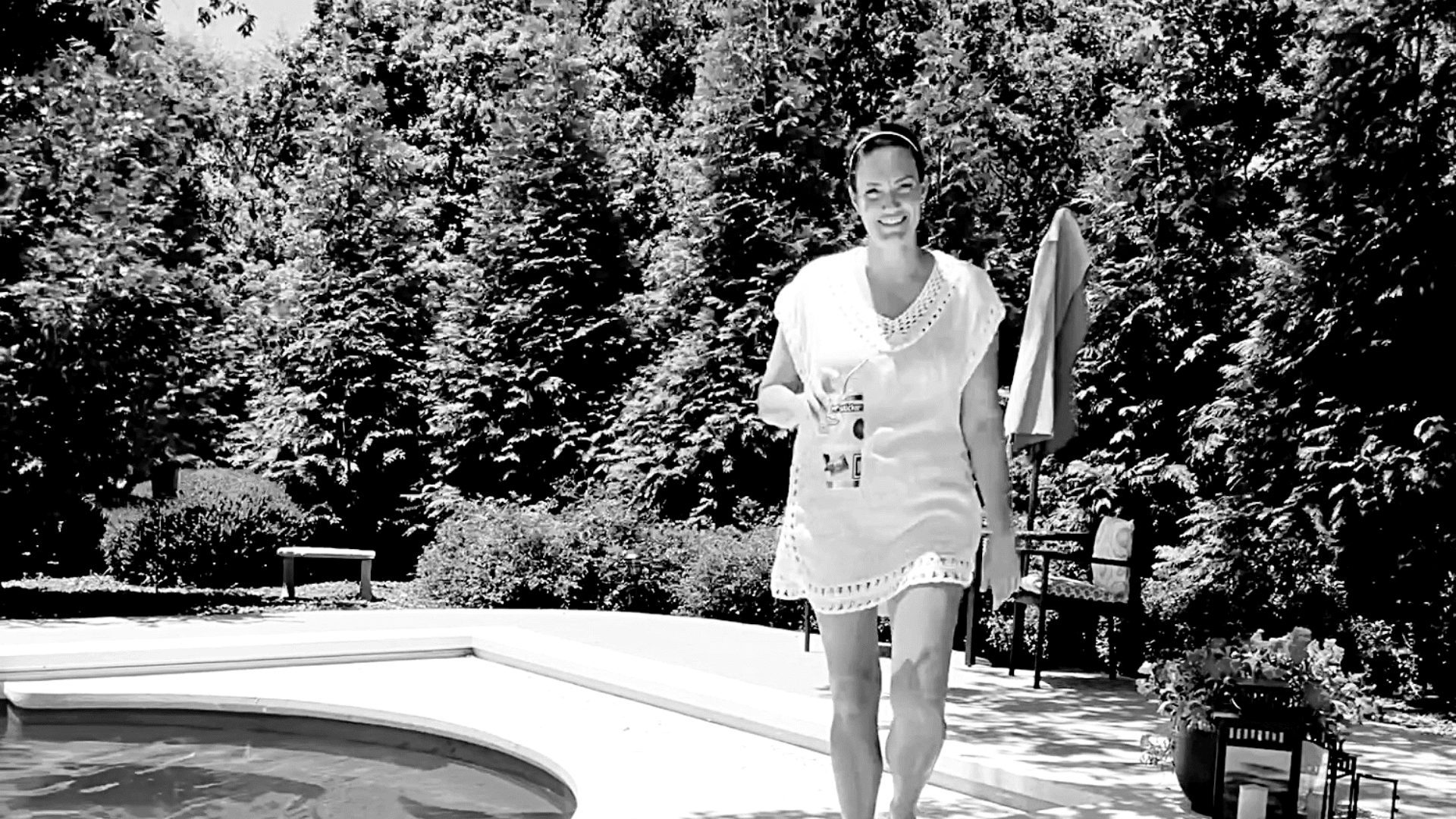Taking control of your drinking habits is a powerful step to improving your overall health and well-being, but it can be difficult to do on your own without a plan. Understanding why you drink and how to overcome common triggers that lead to the consumption of alcohol is key to achieving success in quitting drinking completely. This article will provide tips on replacing your alcohol triggers with an alternate option, so you can take charge of your life and achieve lasting sobriety. Enjoy my journey on how to stop drinking alcohol. 🙂
Start with a Plan: Make an Honest Evaluation of Your Drinking Habits
Starting with a plan is the best way to develop a successful plan to stop drinking completely. Before you can begin, it’s important to evaluate your current drinking habits honestly.
Take some time to reflect on why you want to quit, how much and how often you drink, and how it affects your life.
Look into strategies that may help, such as alternatives to drinking, support groups, and professional counseling if needed.
Consider discussing your decision to quit with close family and friends so they can offer support and encouragement along the way.
My decision to quit came after one of the worst hangovers of my life and only after three drinks.
Quitting drinking had been on my mind, but that was the final straw I felt God was giving me – either you quit, or you’ll start losing things you love.
So one year ago today, I said NO MORE on 12/16/2021.
- No more hangovers
- No more driving impaired
- No more unproductive mornings
- No more wasted money
- No more bar bills
- No more impromptu trips to the Mexican restaurant
- No more giving in to temptations
- No more feeling bloated
- No more regretting what I said the evening prior
- No more missed moments
- No more ignoring God’s requests to stop
Was I an Alcoholic? No more than probably you are. But I needed to understand WHY I felt the need to drink in the first place.
But it wasn’t in the card for me to cut back – alcohol would still win. It was time I took control and alcohol needed to be completely taken out of my life.
Understanding Why You Drink: Tips for Taking Control of Your Habits
Triggers are events or situations that prompt an urge or craving for alcohol. Common examples of triggers include social settings, particular people or events, feeling stress or sadness, or just feeling bored or lonely.
Every person’s experience with triggers will be unique based on their own individual circumstances and experiences, but most individuals have one or more regular activities or emotions that they associate with drinking.
It’s important to identify those personal triggers in order to better understand what encourages excessive drinking – and how to prevent it from occurring in the future.
For me, alcohol became something I looked forward to every evening. Just a couple drinks. Nothing major. (I’d tell myself)
Then the hangovers from nights out with friends and social settings became worse and worse. I was 40-something, and it became embarrassing how hungover I’d get.
How to Identify your drinking triggers
But it wasn’t until I broke down WHY I was drinking that I could tackle each trigger with another option.
- It was a vice to escape from dealing with my kid’s attitude.
- It was a way to loosen up this Introvert at social gatherings.
- It was my pre-game ritual for my husband’s basketball games – ie, an excuse to drink.
- It was a way to fit in.
What I realized is that it was the alcohol that was blocking the genuine conversations, relationships, productivity, and clarity I wanted in the first place.
I suggest starting by making a list of all the activities, people, places, situations, and emotions that might trigger an urge for alcohol for you personally.
Once identified, work towards understanding your specific body responses when certain triggers occur – such as increased heart rate or sweating – and how you tend to react emotionally in response.
This information can help you anticipate potential urges before they arise so that you can respond proactively instead of reacting instinctively when exposed to high-risk situations associated with alcohol consumption.
Overcoming Triggers that Lead to Alcohol Consumption
Once you become aware of the various triggers associated with excessive drinking, consider ways to reduce exposure while minimizing any discomfort associated with abstaining from alcohol use in these situations.
The more mindful awareness you demonstrate regarding your body’s responses when triggered, the better equipped you’ll be able to handle challenging scenarios without turning back to old behaviors related to binge drinking or other forms of excessive consumption.
For instance, instead of dealing with my child’s tantrums, I’d ignore them, toss them in the car, put a device in their hands, and order a jumbo margarita at the nearest Mexican restaurant.
Those triggers happened almost daily – so how I handled those situations was the first thing I needed to deal with.
Instead of my old ways, I’d start to sit down with them, calm them down, and give them my 100% attention and lots of hugs. We hug a lot more now, and it’s been one of the biggest ways we’ve both been able to calm our reactions.
How to Handle Social Situations Without Turning to Alcohol Consumption
Social situations can be tricky when trying to quit drinking. It’s important to have a plan in place ahead of time so that you know what to do and how to handle the situation if faced with temptation.
A great way to stay focused and avoid drinking alcohol is by bringing your own soft cooler filled with your favorite NA beverages.
For me switching to NA options like Spindrift Sparkling Waters, Ritual Zero Proof Spirits, and Bravus Beers have been a total game changer and made going dry SUPER EASY!
There are SO MANY amazing non-alcoholic alternatives on the market – you’ll find a cocktail, wine, or brew that you’ll love.
You can use my code RZPKRISTINKORN at checkout to get 20% off your entire purchase at Ritual Zero Proof! ritualzeroproof.com
While some drink to get drunk. That wasn’t my motive.
I truly love the taste of Margaritas and Stout Beers. After that first sip, I was relaxed in any situation.
But I didn’t have to give that up!
I didn’t want to NOT attend social gatherings, but instead, I needed to come prepared with my own options. I’ve never been a sipper – hence my overdrinking in these situations, so I needed an alternative.
I never made a big deal out of bringing my own drinks to a party.
I’d simply leave my small soft cooler in another room where I’d go to refill my glass or grab another beer. I’d bring my own yeti cup or can coozie so I was always in control. Then when I was out of drinks, it was time to leave! Always have an exit plan 🙂
Develop a Support System: Surround Yourself with People Who Can Help & Encourage You
One of the most important and effective steps to take when trying to stop drinking is developing a support system for yourself. This means finding people who can both help and encourage your journey to sobriety.
Right out of the gate, I reached out to a friend who had been sober for three years, letting her know I was quitting drinking. She shared different people to follow on social media and tips for sticking those 8oz cans of soda (or margarita mix!) in your purse when you leave the house. She also helped a ton with dealing with friendships you’ve developed over alcohol.
Those friends will not understand why you can’t just “cut back” – because you not drinking, makes them look at themselves in the mirror.
It was a bit uncomfortable at first, but again – the more you come prepared for every situation, the easier it gets!
And if friendships are lost – so be it. This is your future. They may come around eventually.
Overall, I wasn’t in a mad rush to tell the world I was going sober – because I obviously didn’t want to talk about it.
I told my husband, kids, closest friends, my mom, and then one by one, those who I’d be out with – I’d let them know I don’t drink anymore if it came up.
Some asked why – some didn’t – but I didn’t have a definite answer – besides, alcohol simply wasn’t serving me well. So ensure you have a one-line response ready to give anyone who asks.
Some people will be super proud and supportive, while some just won’t get it, and that’s ok too.
But it’s important to create a list and turn to the right people for advice, emotional support, and accountability.
Reward Yourself for Successes & Persevere
One of the ways I’d track my DRY DAYS was with the Try Dry app – While I never had any setbacks once I quit – it was an awesome way to track the weeks and months I’d gone dry.
And of course, I’d sneak in some new shoes or jewelry for keeping up with my dry plan! 🙂
While my “drinks” are now replaced with an NA Oatmeal Stout or Ritual Tequila with Spindrift Lime, my life is full of STILLS and more enjoyment than I could every imagined!
- I still enjoy all the favorite tastes the alcohol provided … without the alcohol.
- I still “drink” almost every day.
- In Missouri, I can “drink” and drive.
- I still attend social gatherings.
- I still can pre-game – at the places I know offer NA options!
- I still can fit in ANYWHERE others are drinking (tailgates, pool parties, bars, etc)
- I’ve become a better role model to my kids.
- I enjoy a deeper, better sleep.
- I am up at 5am with productive mornings!
- I enjoy MORE of God’s blessings.
So today, I get to shout from the rooftop that I’ve been DRY FOR ONE YEAR, and I couldn’t be more proud of myself.
I saw a quote the other day that truly resonated with me. “I decided to stop drinking while it was still my idea.”
For someone who once built her brand around Margaritas is now thriving on the other side of NA-only life!
Conclusion: how to stop drinking alcohol
No matter your situation, taking the time to set up a plan and follow through can be an effective way of quitting drinking alcohol completely. Staying focused on the outcome and developing healthy coping skills are key components in avoiding relapses along the way. Don’t give up—you have what it takes to reach your goal of sobriety!




